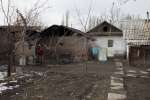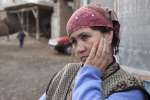Dominican Republic urged not to deport stateless Dominicans
News Stories, 19 June 2015
GENEVA, June 19 (UNHCR) – The UN refugee agency has appealed to the government of the Dominican Republic not to deport tens of thousands of people whose citizenship was thrown into question by a 2013 ruling of the country's Constitutional Court.
Most of these are people of Haitian descent who were born in the Dominican Republic. For decades, the Dominican Republic recognized the children of Haitian migrants born in the country as Dominican citizens irrespective of the migration status of their parents.
However, the Court's ruling, along with previous changes to nationality laws aimed at tackling illegal migration from neighbouring Haiti, ended this and a subsequent regularization plan gave them until mid-June to regularize their status. The ruling denied the children of Haitian migrants birth certificates, identity documents, and left them stateless. A stateless person is one not recognized as a citizen by any country.
"With a stateless population in the Dominican Republic estimated at more than 200,000 people, the consequences of expulsion could be devastating," UNHCR spokesperson Adrian Edwards told a press briefing in Geneva.
He said UNHCR was concerned both about the human rights considerations for people who may be expelled and that people could end up being pushed into Haiti even though they are not considered as citizens of that country.
"This would have serious repercussions for all who are affected and be a serious setback to efforts worldwide to end the problem of statelessness," he added.
UNHCR maintains that it is of the utmost importance that the Dominican Republic avoids creating a new refugee situation and has offered its support to the authorities to identify and register these individuals.
The Dominican authorities have announced that they will conduct screenings of all individuals subject to deportation. UNHCR has recommended that for people who claim to be Dominican, but do not have the required documents, the authorities can use other screening approaches, such as knowledge of Spanish, which would distinguish them from more recent arrivals. In Haiti, most people speak French and local Creole.
Since the 1890s, hundreds of thousands of Haitians have crossed into the more prosperous Dominican Republic to escape political violence and persecution and seek a better life.




































